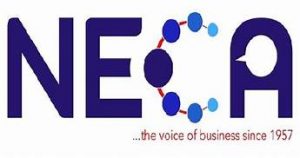MAN Raises Concerns Over FG’s Increase In Excise Rates for Alcoholic Beverages, Tobacco

The Manufacturers Association of Nigeria (MAN) has raised significant concerns on the Federal Government’s increase in excise rates for Alcoholic Beverages and Tobacco. These significant concerns were made known in reaction to the recently released 2023 Fiscal Policy during the press conference held on May 16, 2023 at the MAN House, Ikeja, Lagos.
The press statement signed by the President, MAN, Otunba Francis Meshioye, highlighted that “The government initiated a 3-year excise roadmap in 2018, after extensive consultation with the industry, and the roadmap ran successfully until its conclusion in 2021, without any change or issues. This enabled the industry to successfully plan its operations, given the certainty in excise.
“In 2021, the government retained the excise rates for 2020/21 up until May 2022, while it utilized the 1-year period to engage extensively with industry to decide on a revised roadmap. Following this engagement, the government released the 2022 FPM with a revised 3-year excise roadmap which, though providing for higher excise rates, still took into consideration the potential impact on the industry.
“Barely five months into the implementation of the 2022 excise roadmap, the industry became apprised of plans by the government to further increase excise rates. Industry engaged with the federal government and by the end of 2022, had the informal understanding from these engagements that the excise rates for 2022/23 would be retained for 2023/24.
“This understanding was further confirmed at a meeting held between the Manufacturers Association of Nigeria (MAN) and the Honourable Minister of Finance, Budget and National Planning, which was held on 29th March 2023. At that meeting, the Honourable Minister assured representatives of MAN that there would be no increase beyond the prescheduled increase for 2023, as contained in the 2022 roadmap. In effect, the excise increases in the 2023 FPM are ‘an increase on an increase’, since there was already an approved increase for 2023.”

According to the President MAN, issues with the excise increase as contained in the 2023 FPM.
- The manufacturing sector is in acute recession.
The increase is coming at a time when the manufacturing sector is immersed in unprecedented crisis and an acute recession, due to extraordinary challenges, namely: sustained scarcity of naira (which has led to a crash in consumer purchases); limited access to foreign exchange (which has led industry to purchase foreign exchange from the parallel market, thereby increasing costs); record inflation (which further drive-up cost of operation and prices of products) and a struggling economy. These extraordinary challenges have led to a massive decline of -169% in profit before tax for the brewing sector in Q1 2023. Industry turnover for non-alcoholic beverages and tobacco declined by -15%, while gross profit and profit before tax declined by -31% and -96% within the same period, respectively. The Naira scarcity and limited access to foreign exchange have exacerbated the continued impact of systemic challenges such as high cost of operations, multiplicity of taxes, limited electric power supply and infrastructural challenges.
For instance, the Nigerian manufacturing sector recorded a 36% downturn in profit margins from 2021 to 2022 and over 400% increase in energy costs, further constraining growth of the sector. In addition, the tobacco sector has actively begun to reduce its export production from Nigeria as it has over N39bn+ trapped in the Export Expansion Grant incentive not yet released to it by the federal government to manage its operations. Thus, this is not the time to impose additional increases in excise.
- The rate of excise increase is exceptionally excessive.
The rate of increase is exceptionally excessive and not consistent with best practice globally. For instance, the excise for beer was effectively increased by about 200%, translating to a tripling of excise on the product. This is coming against the backdrop of the huge tax burden on the tobacco and beverage sectors, with the tobacco industry being taxed 5 times more than the average for other industries.
- Significant low sales volumes will lead to business restructuring and a reduction in investment across the impacted sectors.
The manufacturing sector has been struggling with crashing sales, mainly attributable to the sustained naira scarcity in recent times. A continuing decline in sale volumes will necessitate production cuts and a re-evaluation of investments in the sector. Specifically, if sales proceeds can no longer sustain business overheads and operating expenses, businesses will be forced to scale down their operations which would result in factory closures, job losses, a decline in exports and much more.
It is instructive to note that the Excise increase is a direct attack on Foreign Direct Investment (FDI). The National Bureau of Statistics (NBS) three-year trend shows an FDI decline. It is important to Note the negative decline in 2022, with the biggest decline since the implementation of the 2022 roadmap. The World Bank noted a 59% fall in FDI over the last 11 years with an FDI depreciation from $5.97bn in 2010 to $2.45bn in 2021. Data from the National Bureau of Statistics (NBS) showed that FDI into Nigeria fell by 33% in 2022. FDI decline would continue in this trajectory should the excise increase be implemented as planned in June 2023.
- Low Tax Revenue to Government
The ultimate burden on consumer goods is usually passed to Consumers whose disposable income is already stretched. Consequently, consumers will begin to source alternative products from unapproved channels, especially the illicit market in line with their declining disposable income. For instance, Illicit trade in tobacco products would most significantly spike from its current levels of 15% to undesirable levels of above 50% of the sector.
The decline in profitability of the industry will result in a decline in the industry’s total tax contribution to the government, because companies income tax (CIT), value added tax (VAT) and education tax are directly tied to the performance and profitability of the company. In Q1 2023, while tobacco manufacturer’s contribution to excise grew by 7%, its VAT contribution dropped by -36% compared to the same period in 2022.
- The manufacturing sector’s value chain will be severely impacted.
Companies in the affected industries support other businesses in their value chain, cutting across agriculture, logistics, bottling, labelling and packaging businesses, as well as factory and office staff, distribution, wholesale and retail businesses, catering for over 950,000 direct and indirect employees. For instance, over 37,000 sorghum farmers rely on the brewing sector for their livelihood. Unemployment rate which stands at 41%, puts about 489,000 existing jobs at risk and which will further widen the unemployment gap.
A crash in sale volumes and consequent cuts in production will severely impact these businesses in the value chain, which will have a multiplier effect on the national economy. For instance, supplier transactions in the sector declined by over N260 billion by the end of 2022, when compared to 2021.
- Retaining the 2023 FPM will have a negative signalling effect on current and prospective investors.
The 2018 roadmap was excellently conceived and executed, and the federal government was faithful to its commitments for the 3-year duration. This enabled the industry to plan its operations efficiently. It also engendered stability and certainty within the sector, which are key for economic growth. Reneging on the 2022 roadmap within a year of its execution, (and so significantly, in spite of the serious implications of this action), will send negative signals to current and prospective investors in Nigeria, and thereby damage investor confidence.
This will NOT be a good legacy for the current and outgoing administration.
- The total excise derivable from the excisable sector is insignificant when compared to Nigeria’s revenue needs.
The revenue need of the government has been mooted as a reason for the excise increase. However, the total excise receivable from the sector is insignificant when compared to Nigeria’s revenue needs. The total excise received in 2022 was about N60billion. With the announced increases, excise receivable in 2023 is unlikely to exceed N150billion, which, while an exponential increase from the current, is insignificant when compared to the N12 trillion deficit in the 2023 budget.
- The Implementation period provided for in 2023 FPM is contrary to the National Tax Policy
The 2023 FPM stipulates 1st June 2023 as the implementation date for the new excise. This runs contrary to the National Tax Policy, which requires a minimum of 90 days before the implementation of tax changes.
Concerns with the Single Use Plastics Tax
We would also like to use this opportunity to reiterate our concerns about the Single Use Plastics tax. Our primary concern is that it does not appear to have a basis in law, as it is not provided for under the Customs, Excise, Tariff, etc (Consolidation) Act (CETA), unlike beverages and tobacco. The tax will also further fuel inflation and weaken consumer purchasing power, without achieving the desired climate change objective.
Impacted Industry request
In view of the foregoing, we respectfully request the federal government to:
- Suspend the 2023 FPM on excise duty and retain the 2022 -2024 excise duty roadmap as approved in the 2022 FPM, to foster stability in the affected sectors and their value chain, in the interest of the national economy.
- Reverse the tax on Single Use Plastics and engage with relevant stakeholders to facilitate ongoing initiatives, which have a better prospect of achieving the desired environmental objectives. A good example of this is the Food & Beverage Recycling Alliance, approved by the federal government.
- Consider, with input from the sector and other critical stakeholders, alternative measures to achieve revenue and other objectives of the government in a sustainable manner.









